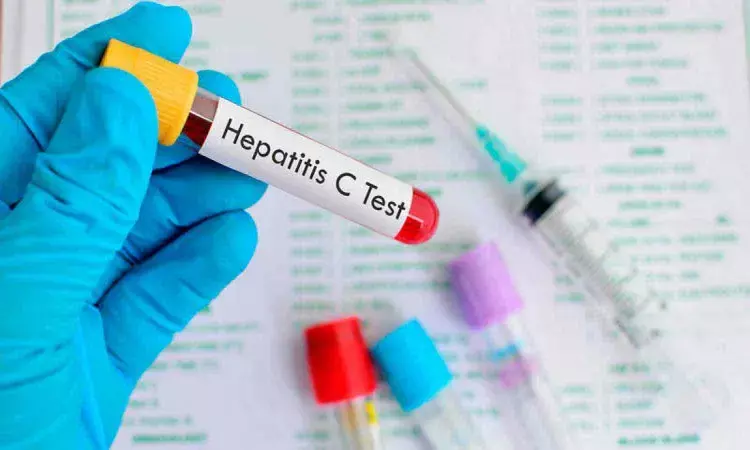- Home
- Medical news & Guidelines
- Anesthesiology
- Cardiology and CTVS
- Critical Care
- Dentistry
- Dermatology
- Diabetes and Endocrinology
- ENT
- Gastroenterology
- Medicine
- Nephrology
- Neurology
- Obstretics-Gynaecology
- Oncology
- Ophthalmology
- Orthopaedics
- Pediatrics-Neonatology
- Psychiatry
- Pulmonology
- Radiology
- Surgery
- Urology
- Laboratory Medicine
- Diet
- Nursing
- Paramedical
- Physiotherapy
- Health news
- Fact Check
- Bone Health Fact Check
- Brain Health Fact Check
- Cancer Related Fact Check
- Child Care Fact Check
- Dental and oral health fact check
- Diabetes and metabolic health fact check
- Diet and Nutrition Fact Check
- Eye and ENT Care Fact Check
- Fitness fact check
- Gut health fact check
- Heart health fact check
- Kidney health fact check
- Medical education fact check
- Men's health fact check
- Respiratory fact check
- Skin and hair care fact check
- Vaccine and Immunization fact check
- Women's health fact check
- AYUSH
- State News
- Andaman and Nicobar Islands
- Andhra Pradesh
- Arunachal Pradesh
- Assam
- Bihar
- Chandigarh
- Chattisgarh
- Dadra and Nagar Haveli
- Daman and Diu
- Delhi
- Goa
- Gujarat
- Haryana
- Himachal Pradesh
- Jammu & Kashmir
- Jharkhand
- Karnataka
- Kerala
- Ladakh
- Lakshadweep
- Madhya Pradesh
- Maharashtra
- Manipur
- Meghalaya
- Mizoram
- Nagaland
- Odisha
- Puducherry
- Punjab
- Rajasthan
- Sikkim
- Tamil Nadu
- Telangana
- Tripura
- Uttar Pradesh
- Uttrakhand
- West Bengal
- Medical Education
- Industry
Antiviral treatment for hepatitis C reduces risk of post-treatment liver cancer progression, study shows

OSAKA, Japan - Hepatitis C virus (HCV)-related hepatocellular carcinoma (HCC) is a disease with a high recurrence rate.
Researchers at the Osaka City University Graduate School of Medicine reported in a new cohort study that in patients of HCC after receiving cancer treatment, the oral administration of direct-acting antivirals (DAA) reduces the risk of tumor progression following recurrence of the liver disease.
The findings were published in the Journal of Viral Hepatitis.
Led by Norifumi Kawada, professor of the Department of Hepatology, the study investigated the effect eliminating HCV had on tumor progression* of early-stage HCC. "DAA therapy is effective at eradicating the hepatitis C virus, a major risk factor for HCC" says Professor Kawada. "While it is deemed low or inconclusive whether DAA therapy helps prevent HCC recurrence, little is known about how the antiviral therapy affects progression of the liver disease after cancer treatment."
165 patients with early-stage HCC, who were also receiving curative HCC treatment, enrolled in the study. After treatment, 72 patients received DAA therapy while the remaining 93 did not. The team recorded 96 HCC recurrences with approximately 75% of them at an early stage according to the Barcelona Clinic Liver Cancer staging system. To account for bias inherent in a single-center retrospective study, a multivariate adjusted time-varying Cox regression analysis showed a 72% reduction in tumor progression in the DAA-treated group and an 88% reduction in risk of death from HCC. Also, the frequency of cancer treatments given before the cancer progressed saw a 59% decrease, from 0.83 treatments per year in patients who did not receive DAA therapy to 0.24 treatments per year in patients who did.
"Usually, cancer cells grow over long periods of time before they can be detected as a tumor," states first author Hiroko Ikenaga. "Our study showed that eliminating the hepatitis C virus with DAA suppresses tumor progression, which we suggest contributes to overall patient survival."
HCV infection affects 71 million people worldwide and accounts for about 65% of the causes of liver cancer in Japan. While the team will continue to investigate issues like the extent to which liver cirrhosis and function improve after the antiviral treatment, as supporting author and Lecturer Sawako Uchida-Kobayashi puts it, "the suppressing effect of DAA therapy on cancer progression revealed by our study gives us hope to improve the overall quality of life for people with HCC."
*Tumor progression was defined as when HCC progresses to more than 4 nodules in the liver, portal invasion or extrahepatic metastasis.
https://onlinelibrary.wiley.com/doi/10.1111/jvh.13627
Hina Zahid Joined Medical Dialogue in 2017 with a passion to work as a Reporter. She coordinates with various national and international journals and association and covers all the stories related to Medical guidelines, Medical Journals, rare medical surgeries as well as all the updates in the medical field. Email: editorial@medicaldialogues.in. Contact no. 011-43720751
Dr Kamal Kant Kohli-MBBS, DTCD- a chest specialist with more than 30 years of practice and a flair for writing clinical articles, Dr Kamal Kant Kohli joined Medical Dialogues as a Chief Editor of Medical News. Besides writing articles, as an editor, he proofreads and verifies all the medical content published on Medical Dialogues including those coming from journals, studies,medical conferences,guidelines etc. Email: drkohli@medicaldialogues.in. Contact no. 011-43720751


